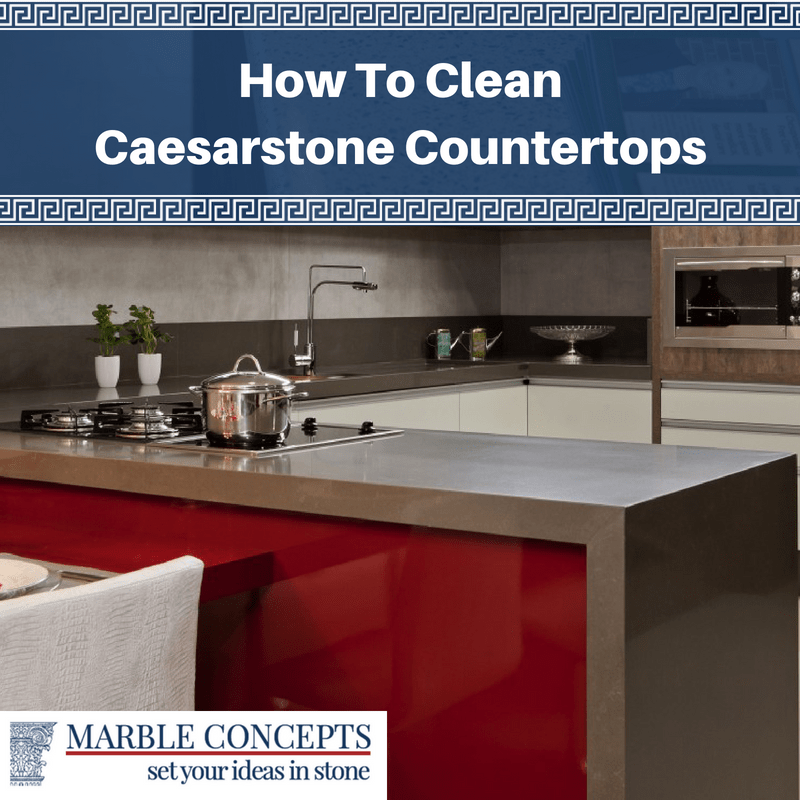Quartz countertops definitely deserve undivided attention when it comes to maintaining their natural beauty and vitality. Whether you already have quartz countertops or are contemplating purchasing and installing them, there are some important steps you should know in order to keep them in tip-top condition.
Caesarstone leads the way in quartz countertop manufacturing, and the company is well aware of how important it is to maintain their quartz countertops, and the integrity of their products for years to come. They want consumers to have information at their fingertips in order to preserve and protect their quartz countertops. They provide clear-cut guidelines for the care of quartz countertops, which include the following:
Daily Cleaning
Caesarstone quartz countertops require little scrubbing, if any. They have a hard, durable and nonporous surface, which is resistant to stains and absorption of liquids. Everyday cleaning consists of wiping countertops with a soapy sponge and water or a moistened cloth. There are also recommended cleaners that can be sprayed on the countertops and wiped dry with paper towels or soft cotton cloths. Any wiping should be done in a circular pattern to help retain the luster of the countertop.
Stains
Stains are not a big issue with Caesarstone as their quartz countertops are able to handle almost any kind of stain, such as oils, seasonings, red wine, scratches, marking pen marks, makeup and other various food stains. Stains that do occur should be addressed with the use of a cleaner with oxalic acid. The stain can be wiped with a sponge, rinsed and wiped dry. Stains of increased intensity can be removed with alcohol and a soft cloth. Household bleach can also be used on lighter colored quartz to remove surface stains.
Other Types of Stains
If stains are oily, a degreaser can be used. The same is true of glues, adhesives, wax, meat and poultry drippings, and even water stains, as they can also be cleaned with a degreaser. The degreaser can be put on the surface and should remain there until the stains are removed. To remove any leftover debris, use a moistened cloth and wipe the area dry with another cloth or paper towel.
Anything sticky or dry in the way of food debris can be removed with the flat side of a plastic knife. Once removed, the area can be wiped clean with a cloth or paper towel. Something that seems difficult to remove, like nail polish, can be cleared away with fingernail polish remover that has an acetone base. Once removed, the area can be dried with a clean cloth or paper towel.
No Abrasives or Harsh Cleaners
Though Caesarstone quartz is impervious to most anything, its surface can be damaged through the use of abrasive sponges and cleaners. The following chemically based cleaners should never be used on quartz surfaces:
- toilet bowl cleaners
- strippers for paint and related removers
- polishing products
- Chlorides – Trichlorethane and Methylene
Heat and Caesarstone
Heat above a certain temperature (300 degrees) can cause damage to quartz surfaces. Even though quartz is heat resistant, a countertop surface can be subject to damage if temperature extremes exist. Do not place cookware, or any kind of cooking type sheets on Caesarstone surfaces. Utilize trivets, hot pads, or pot holders to absorb the heat.
Sharp Utensils
Any sharp utensils, like knives, forks, metal scrapers and any other sharp items can also be damaging to Caesarstone. Utilize a cutting board to prevent damage from any type of sharp utensil.
Caesarstone care and maintenance can be an easy process. Should you have further questions or concerns about cleaning Caesarstone countertops, complete the online contact form and a Caesarstone expert will get back to you with the information you need to protect, care for and maintain your valuable quartz surface.






